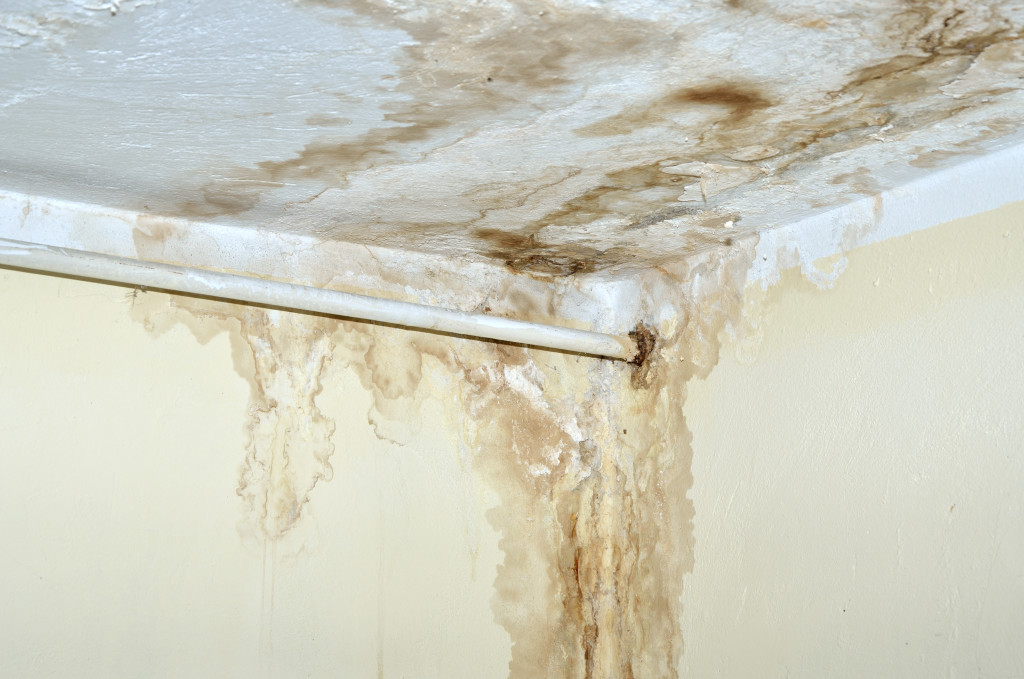- Water damage can significantly impact your health, even if you don’t notice it immediately.
- Common symptoms of water damage include mold growth, respiratory conditions, skin irritation, stress and anxiety, and cardiovascular conditions.
- Acting quickly when water damage occurs is the best way to prevent mold growth.
- Exposure to damp environments can worsen allergies and asthma.
- Certain bacteria found in water-damaged environments can lead to serious respiratory infections.
Water damage can significantly impact your health, even if you don’t notice it immediately. Water damage can affect your home in many ways and cause various health issues. When water invades your home, the effects are never good, but what’s worse is that its long-term health impacts may not be immediately apparent. That said, it is crucial to understand the potential physical ramifications so that you can take preventative measures and address any existing problems as quickly as possible. This article will discuss how water damage can affect your overall health—including mold growth, respiratory conditions, and more—and provide tips for preventing and addressing any adverse effects.
Mold Growth
Mold growth is one of the most common and dangerous issues associated with water damage. When warm, dark environments exist, mold spores can quickly proliferate, leading to health issues ranging from headaches to upper respiratory infections.
Mold releases microscopic spores into the air that can cause various health problems for those exposed. Common symptoms include coughing, sneezing, eye irritation, asthma attacks, wheezing, difficulty breathing, and runny nose and throat irritation. Allergies and sensitivities also increase because of elevated mold levels in the air. Over time these can potentially lead to more long-term severe illnesses such as chronic pulmonary diseases or lung infections in specific individuals.
Acting quickly when water damage occurs is the best way to prevent mold growth. If you notice any standing water in your home, it’s essential to clean it up and dry out the affected area as soon as possible. You should also inspect your home regularly for signs of moisture, such as discolored walls or musty smells.
Respiratory Conditions
When exposed to damp environments, like those created by water damage, allergies and asthma can worsen significantly.
Exposure to mold spores can irritate airways and cause difficulty breathing. People living with Asthma may experience more frequent attacks due to increased exposure to allergens that trigger the condition. People with allergies or lung diseases may also suffer from increased attacks.
Additionally, certain bacteria found in water-damaged environments can lead to serious respiratory infections such as Legionnaires’ disease. This is a rare but potentially fatal illness caused by inhaling certain bacteria. It is important to note that this type of infection rarely occurs outside damp and humid conditions like those created by water damage.
To prevent respiratory issues arising from water damage, it is essential to clean up any standing water quickly and seal off the affected area promptly. Additionally, installing proper ventilation systems throughout your home will help reduce humidity levels, making your environment less hospitable for mold and other allergens.
Skin Irritation

Exposure to excessive amounts of moisture can cause skin irritation, itching, and rashes. These symptoms are typically caused by bacteria that thrive in damp environments and release toxins into the air. Additionally, direct contact with mold or contaminated water can cause skin irritation and inflammation.
To prevent skin irritation, it is important to take steps to minimize your exposure to moisture, including cleaning up any standing water as soon as possible and using a dehumidifier if necessary. Additionally, wearing protective gear when dealing with contaminated materials can help reduce your risk of skin irritation.
Stress and Anxiety
The stress of dealing with the aftermath of water damage can lead to anxiety, depression, and other forms of mental distress. The fear of further damage resulting from a potential infestation of mold or pests can cause people to feel overwhelmed and anxious. Additionally, the financial burden of dealing with repairs can add to the stress.
It’s important to take steps to reduce the stress associated with water damage. Ensure you are adequately informed about how best to address the problem and use a professional service if necessary. Additionally, it is essential to remember that while water damage can cause significant disruption, it is usually possible to repair any adverse effects eventually.
Cardiovascular Conditions
Exposure to mold spores or other toxins from water-damaged environments can also lead to cardiovascular problems such as high blood pressure and heart palpitations in susceptible individuals. Inhaling these particles may cause inflammation in your lungs, leading to increased strain on your cardiovascular system.
To reduce your risk of cardiovascular complications, it is essential to take steps to prevent mold growth and avoid any significant exposure to contaminated environments. Additionally, if you are already at risk for cardiovascular conditions, speak with your doctor about how best to protect yourself from further damage due to water damage.
Commonly Asked Questions
How can I tell if my home has water damage?

The most common signs of water damage in a home are stains on walls or ceilings, discoloration and bubbling paint, musty odors, peeling wallpaper, warped floors, and mold growth. If you notice any of these signs in your home, it is important to inspect further to determine the full extent of the water damage.
What do I do after water damage occurs in my home or business office?
If you have identified water damage in your home or office, it is vital to act quickly to prevent further damage. First, locate and fix the source of the water problem. Then, use fans or dehumidifiers to reduce moisture in the room and remove any standing water using a wet/dry vacuum. After completing these steps, contact emergency water restoration services to ensure the damage is properly cleaned and repaired. If your business has been flooded, commercial water damage restoration services can help you recover from the loss. They can help you extract water, dry and dehumidify the area, clean and disinfect it, and then restore the area. If it’s your home, call a residential water damage service instead.
Are there any specific health risks for children or elderly people regarding water damage?
Yes, there are specific health risks associated with water damage that can be especially dangerous for vulnerable groups such as children and elderly people. Prolonged exposure to mold or bacteria present in a damp environment can lead to respiratory complications and other illnesses. In addition, standing water creates an ideal breeding ground for insects such as mosquitoes which can transmit diseases like malaria and dengue fever. Acting quickly in the aftermath of water damage is important to protect vulnerable individuals from these health risks.
What are some preventative measures I can take against water damage?
The best way to proactively protect your home from water damage is by ensuring that all areas of your house remain well-ventilated and dry. Additionally, regularly inspect plumbing fixtures and appliances like dishwashers or washing machines for any leaks or damage. Lastly, checking for clogs in drains and gutters can help prevent water from building up inside your home.
In Summary
Water damage can have a significant impact on your overall health. Common effects of water damage include mold growth, respiratory conditions, skin irritation, stress and anxiety, and cardiovascular conditions. To protect yourself from these risks, it is essential to prevent water damage and address any issues quickly and effectively. Following these tips and taking action swiftly in the event of water damage can help keep you and your family safe from its long-term health impacts.